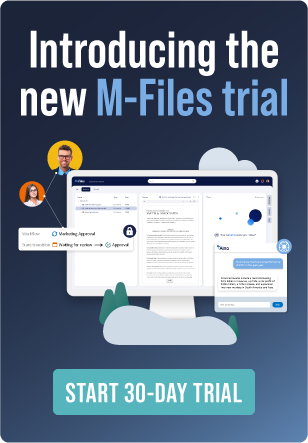What is Metadata? Why is Metadata Useful?

What is metadata? Why is metadata useful? Two questions we answer in a recently published infographic. As the image mentions, metadata is descriptive data that labels a piece of information and provides context and meaning to what that information is.
What is Metadata? A Quick Example.
Let’s say a real estate company has a signed lease agreement in PDF format. With archaic file folder structures, the agent might save that document in a folder called “Lease Agreements” with the file name “Lease Agreement-125 Main Street.pdf”. Pretty typical thing to do, right?
But what happens when someone needs to find that lease agreement and other related documents for the tenant, John Hanover? They have to search through a mess of stuff to hopefully find what they need.
What if Accounting needs to pull up all lease agreements signed in July 2019? How will that PDF be found? The date is not in the file name or the folder.
It’s a very simple example that has a simple solution in metadata. Optimally, the leasing agent could apply metadata to the file to categorize things like:
- Lessor
- Lessee
- Execution date
- Signature date
- Lease terms
- Lease start date
- Lease end date
- Property name
- Property address
- …and whatever pieces of data are important
That makes the document searchable, editable and manageable, no matter what it’s called or where it lives. One might argue that metadata is as valuable as the data itself.
Why is Metadata Useful?
There are so many ways that metadata is useful for businesses in contextualizing their information and documents. First and foremost, you can say goodbye to chaotic folders, for good. Network folders are an antiquated structure for organizing and managing documents — just like their predecessor, file cabinets and manila folders. With metadata, M-Files is repository-agnostic, which means it doesn’t matter where it’s stored, it only matters what it is. What a powerful concept.
We really could go on and on about the many uses of metadata — from assigning permissions to kicking off review and approval workflows and so much more. But how about we just leave this fantastic infographic here for you to digest. (Download it here.)




